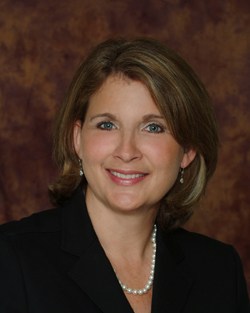Report: Walmart leads retailers in effective chemical policies
by November 21, 2016 12:00 am 219 views

A Washington, D.C.-based environmental action group known as Safer Chemicals, Healthy Families found Wal-Mart Stores and Sam’s Club are leading the way in efforts to eliminate toxic chemicals with strong policies and demands from their supplier bases.
In the “Who’s Minding the Store?” report card on retailers — which can be found at www.retailerreportcard.org — the group evaluated the largest retailers in the U.S. for their efforts on safer chemicals programs. The investigation revealed that while some leading retailers are making significant progress to move the market away from toxic chemicals, other top retailers are not.
Major U.S. retailers earned grades ranging from B for good progress to F for failing to develop and make public even basic safer chemical policies. The average grade was a D+, indicating a need for improvement by retailers to meet rising consumer demand for safer products.
Retailers were graded on a scale of 0 to 130 points, and a corresponding letter grading scale was developed to match the points. Grades were assigned based on publicly available information concerning retailer policies and self-reported information concerning retailer practices. The group also reached out to retailers, giving them an opportunity to review their draft score and provide additional information.
The report card reveals improvements made to Target’s chemical policy over the past year. The company: 1) Added cosmetics to the categories of products covered by its policy; 2) Expanded the list of chemicals subject to its policy to include chemicals banned in cosmetics in the European Union and Canada; 3) Significantly improved its evaluation of suppliers’ transparency practices, particularly a new way for Target to evaluate fragrance ingredients against its restricted substance list; and 4) Added new criteria pushing suppliers to publicly disclose their fragrance palette, allergens in fragrance and nanomaterials.
The report card also reveals CVS Health is the first pharmacy chain in the country to become a signatory to the Chemical Footprint Project. Additionally, CVS Health has pledged to publicly disclose its restricted list of chemicals in 2017.
Best Buy also disclosed it is developing a safer chemicals policy, restricted substance list, and manufacturing restricted substance list, to drive harmful chemicals out of electronics.
“As the holiday shopping season approaches, consumers should pay close attention to how big retailers are tackling toxic chemicals,” said Mike Belliveau, executive director of Environmental Health Strategy and advisor to Safer Chemicals, Healthy Families. “Our new report found that some giant retailers like Walmart, Target and CVS are taking meaningful and concrete steps to systematically drive toxic chemicals out of products. However, too many others like Amazon, Costco, Albertsons and Kroger have failed to make public even basic safer chemical policies. The 11 retailers we evaluated have combined sales over $1 trillion, a market power that can transform the toxic chemical economy.”
Belliveau added retailers must send a stronger signal up their supply chains — no more toxic ingredients. He hopes consumers will use the report when they decide which retailers to shop.
“Big retailers are on the frontline of consumer discontent with product safety,” he said. “Parents are more aware than ever that our chemical safety system is badly broken. When out shopping, no one should have to worry that the shampoo, lotions, cleaners, clothing, shoes, or home electronics contain toxic ingredients that could harm their family’s health.”
